 |
 |
 |
 |
 |
<< subjects
>> |
 |
 |
05.-
Basque in America
05.1
BECOMING AMERICAN
However, as in the Old World, things in the New are not immutable.
In the US the Basques and their affairs change with time. The first
obstacle confronting the Basque immigrant was his ignorance of the
language, hence the difficulty in getting any job for which knowledge
of English was essential. Most of the Basques arrived in the US
to work as shepherds, so that in the early days of American California
their compatriots were associated with the sheep business. From
then on many prospered, and they themselves, or the generation that
followed, were in a better position to take advantage of the opportunities
available in a country like the US. Some, after many years there,
decided to return to Europe. Others simply aged, with or without
family, taking part every day in a game of mus [a Basque card game]
in the local Basque hotel.
|
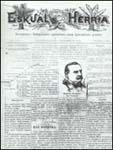 |
 |
|
05.2
THE LANGUAGE MAINTENANCE
Many first generation Basques born in the US were bilingual, speaking
Euskara and English. French and Spanish also had their place in
Basque communities. Distances apart, there is a certain parallel
with the situation in Euskal Herria some decades ago, when parents
who spoke little other than Euskara raised bilingual children speaking
Euskara and Spanish or Euskara and French; In the United States,
people who spoke Euskara and English or, in the best of cases, people
who spoke three or four languages, and in less fortunate cases,
monolingual Spanish, French or English speakers.
|
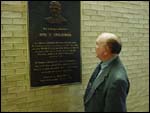 |
05.3
"I'M BASQUE"
Until a little more than thirty years ago, the flow of Basque emigrants
to America contributed to the intensification of ethnic Basque-American
activities. Starting in the 1970's, the process of Basque cohesion
and union became institutionalized in the New World, overcoming old
fashioned-ideas and stereotypes still current among some European
Basques. American Basques accept "Zazpiak Bat" as a natural
slogan and symbol of something they see as no less natural than the
union between the Basques of the seven provinces, and to which they
ascribe little political significance. |
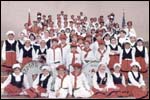 |
|
05.4
SOME FACTS
As this 21st century begins, it is still possible in the midst of
American Basque communities to run into young people, in their twenties
and thirties, children of Basque immigrants, whose maternal language
is Euskara. People who in Euskara speak without any American accent,
but rather with the accent of Lower Navarre, Bizkaia, or Lapurdi,
and who at the same time speak perfect English with the accent of
the place in which they were born. Clearly the preservation of a
language is not easy, and English is today the language most commonly
used between American Basques. The Basque community is not in this
regard an exception. If we look at how the original languages of
Italians, Germans, and so on have fared, however, we see that Euskara,
given its circumstances, has in comparison survived quite resolutely.
|
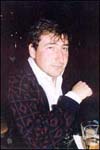 |
|
05.5
LOOKING TO THE FUTURE
The new generations exhibit the natural process of Americanization.
To be Basque or to be part of the Basque phenomenon is an option
today that may or may not be exercised. Those who wish may strengthen
their ties via cultural elements such as dances and customs, while
in some there is also the desire to travel to Euskal Herria and
study Euskara, Spanish, or French. In recent years we have even
seen the resurgence of Basque language classes, facilitated by new
courses via the Internet. With succeeding generations the mode of
being Basque has adapted to a new environment, and the concept of
Basque-ness has altered, although to the question "What are
your roots?" the answer continues to be the same: "I'm
Basque," "Euskalduna naiz."
|
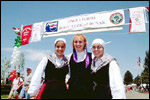 |
|
|
 |
 |
 |
|
|





